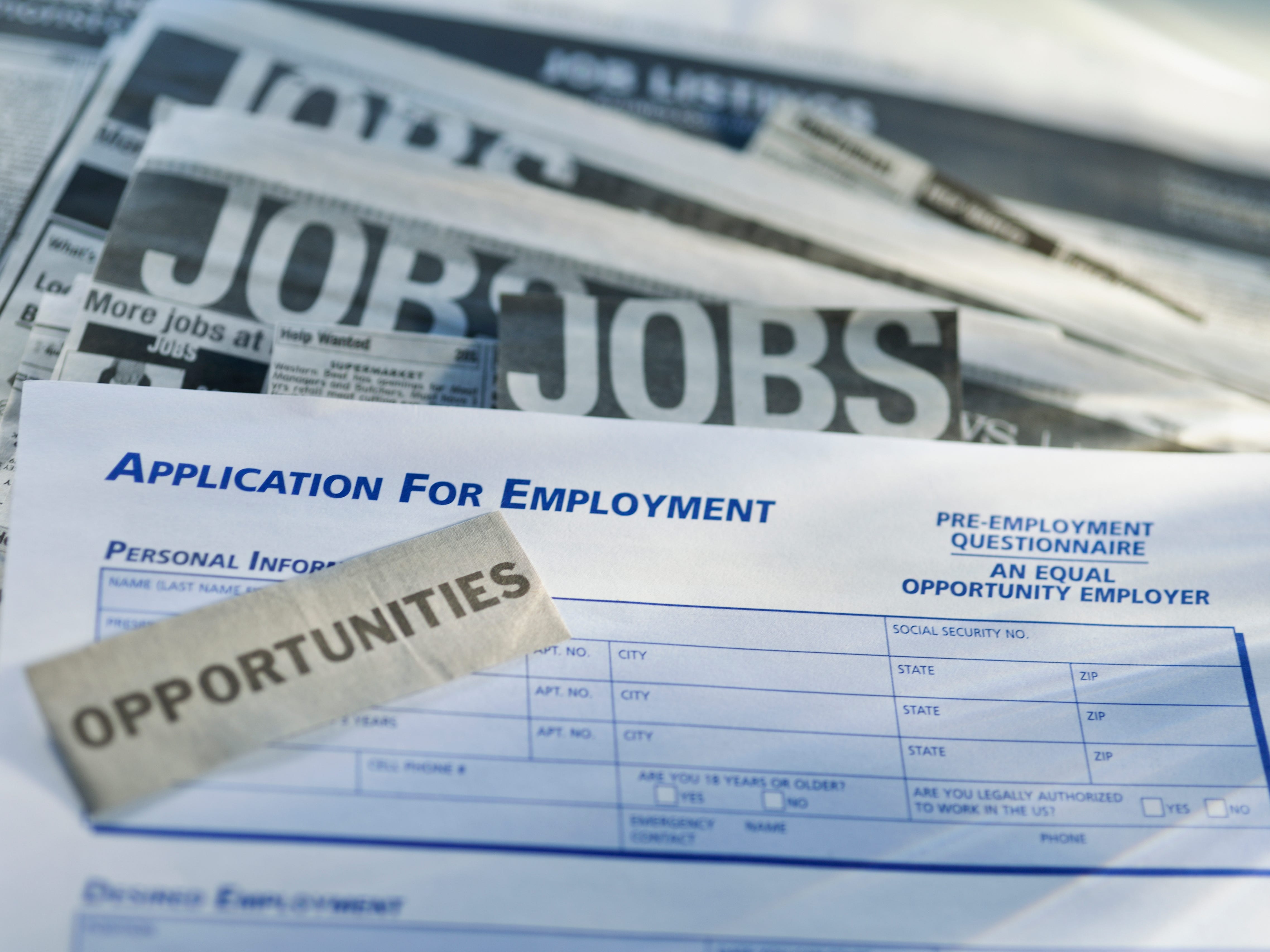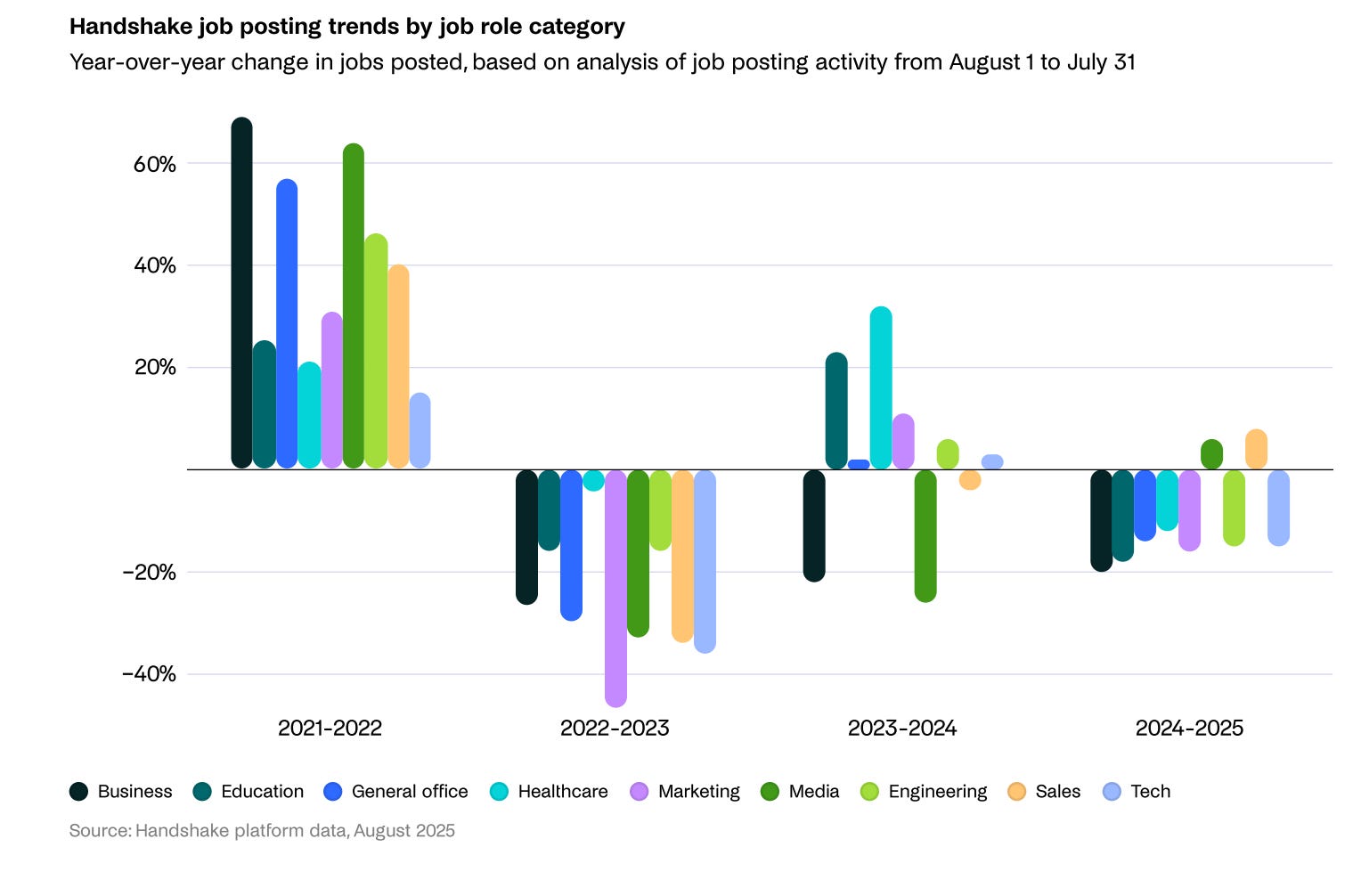
Tetra Images/Getty Images/Tetra images RF
Landing your first job has never felt easy — but for today’s college grads, the hunt has likely gotten worse.
In a survey of 2,440 class of 2026 students, more than 60% said they felt pessimistic about their career prospects, according to Handshake’s Workforce Outlook report. That’s a 10% jump from two years ago. While grim, that outlook may reflect the reality of today’s challenging entry-level job market.
The report, which was released today, also found that job postings on the platform were down over 16% year-over-year as of August, while the average number of applications per job increased by 26% year-over-year, indicating more competition.
While it’s typical for the job market to fluctuate, Handshake chief education strategy officer Christine Cruzvergara told Business Insider that the last time grads faced a market this tough was during the market crash in 2008 and 2009.
“That was a really tough period of time,” Cruzvergara told Business Insider about 2008, adding that she was responsible for putting on a career fair at the time, but a “huge chunk” of the employers no longer existed by the time the fair happened.
The job market may not be battling a recession like 2008, but it has its own challenges, and not just for entry-level workers. Many companies are reeling from economic uncertainty brought on by tariffs, and the July jobs report confirmed what many job seekers have experienced in recent months.
The report revealed that 33,000 fewer jobs were added than expected, and larger-than-usual revisions to May and June’s job growth suggest earlier growth was weaker than initially thought. The unemployment rate also ticked up slightly from 4.1% in June to 4.2%.
In addition to pressures driven by the economic environment, the emergence of AI has added another layer of uncertainty.
AI’s true impact on entry-level roles remains uncertain
While AI is expected to transform much of the workforce, many believe its immediate impact will be felt most in entry-level roles, where basic tasks might be more easily automated.
Business leaders like Anthropic CEO Dario Amodei have sounded the alarms on AI slashing entry-level roles, and a new study from Stanford University seems to point in a similar direction.
Published Tuesday, the study indicates that workers ages 22 to 25 in jobs most exposed to AI, such as software engineers or customer service roles, saw a 13% relative decline in employment after controlling for industry or company shocks, like interest-rate changes.
The researchers noted that the facts could be influenced by factors other than AI, but the results were consistent with a hypothesis that AI has begun impacting entry-level jobs.
However, Handshake’s report found that roles that were considered to be more exposed to AI actually remained in line with broader job trends on their platform. Job postings for entry-level tech roles, one of the most AI-exposed industries, declined by 15%. Meanwhile, job postings for healthcare roles saw a 12% decrease, showing a similar impact.

screenshot/Handshake
Cruzvergara told Business Insider that the Handshake platform has an automatic one-month expiration date on all postings to limit ghost postings. If an employer wants to extend the listing, they have to manually extend it another month, she said.
A graph included in the report shows that job postings in other categories less directly exposed to AI, like education, healthcare, and marketing, have also decreased. That graph also shows that in 2022 and 2023, before the AI boom took off, tech role postings actually decreased at a visibly higher rate.
Cruzvergara said that while it’s still too early to know the full extent of AI’s impact on entry-level roles, young professionals are facing a tough job market.
“It’s the economy, it’s tariffs, it’s AI, it’s all of it together,” Cruzvergara said.
The post More bad news for college grads: Fewer jobs and more competition appeared first on Business Insider.




